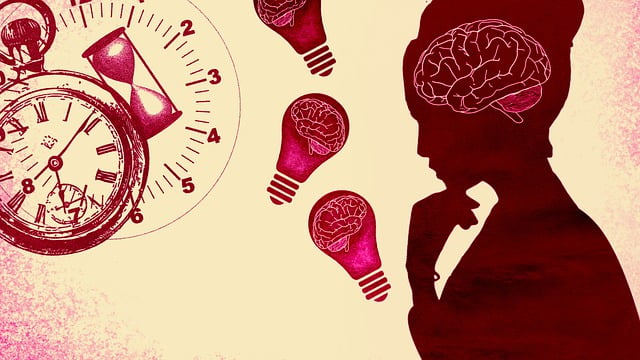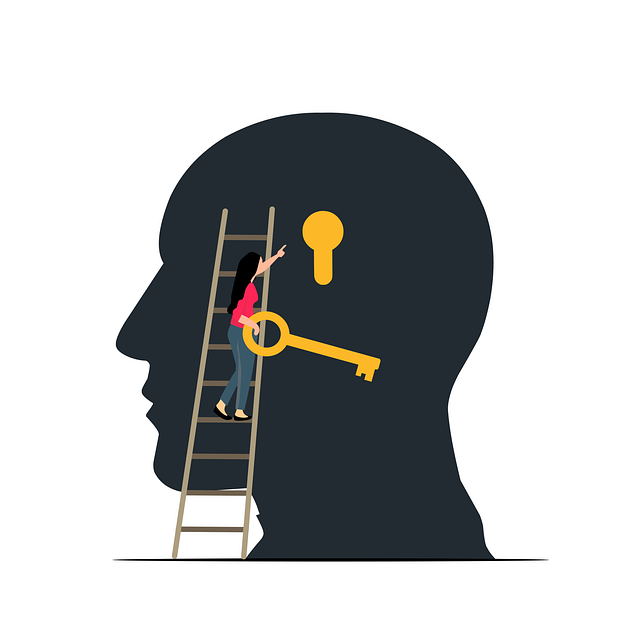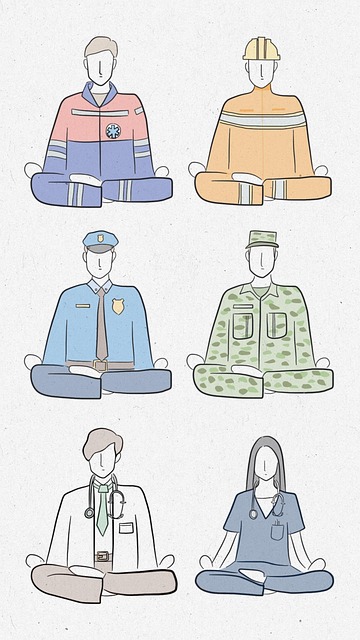Cultural diversity enriches Louisville's mental healthcare landscape, especially with its growing Mandarin Chinese-speaking population. The Louisville Mandarin Chinese Speaking Therapy Initiative addresses critical cultural gaps by offering specialized therapy sessions in Mandarin, breaking language barriers and fostering trust. This program equips therapists with cultural sensitivity skills, self-awareness exercises, and encouragement for clients' self-care routines to ensure empathetic interactions. Through community outreach engaging leaders, schools, and organizations, this initiative reduces stigma, promotes positive thinking, and enhances access to quality mental healthcare for Louisville's Mandarin Chinese speakers. Integrating culturally adapted practices and mindfulness techniques improves treatment outcomes and cultivates resilience among diverse ethnic backgrounds.
“Cultural sensitivity is a cornerstone of effective mental healthcare, especially in diverse communities. This article explores the intricate aspects of providing inclusive services, highlighting initiatives like the Louisville Mandarin Chinese Speaking Therapy Initiative. We delve into the challenges and strategies surrounding cross-cultural communication, offering insights on enhancing access and outcomes for all. By understanding cultural diversity, mental health practitioners can create safe spaces, improve patient engagement, and ultimately foster better mental well-being within diverse communities.”
- Understanding Cultural Diversity in Mental Health Care
- The Louisville Mandarin Chinese Speaking Therapy Initiative
- Barriers and Challenges in Cross-Cultural Communication
- Strategies for Culturally Sensitive Practice
- Enhancing Access and Outcomes for Diverse Communities
Understanding Cultural Diversity in Mental Health Care

Cultural diversity is a vital aspect of modern society, and its impact on mental healthcare cannot be overstated. In Louisville, for instance, where there’s a growing Mandarin Chinese-speaking community, providing culturally sensitive therapy services has become increasingly essential. This involves understanding and respecting the unique beliefs, values, and practices that shape individuals’ mental health experiences. Mental health professionals must recognize that cultural contexts influence how people express emotions, seek support, and perceive certain mental health conditions, such as depression or anxiety.
Integrating this awareness into practice requires well-designed Mental Health Education Programs. These programs should equip professionals with the skills to conduct thorough risk assessments for mental health patients from diverse backgrounds. By doing so, they can create safe and inclusive spaces that foster open communication. This is particularly crucial when working with communities like Louisville’s Mandarin Chinese speakers, ensuring effective therapy despite language barriers. Through these efforts, mental healthcare becomes more accessible and responsive to the complex needs of a culturally diverse population.
The Louisville Mandarin Chinese Speaking Therapy Initiative

In Louisville, a groundbreaking initiative has emerged to bridge cultural gaps in mental healthcare: the Louisville Mandarin Chinese Speaking Therapy Initiative. This program aims to improve access to mental wellness services for the city’s growing Mandarin-speaking community by offering specialized therapy sessions conducted entirely in Mandarin. The initiative recognizes the unique challenges and cultural nuances that individuals from diverse backgrounds, such as immigrants and refugees, often face when seeking mental health support.
Through this innovative approach, trained therapists provide a safe and culturally sensitive environment, facilitating open communication and ensuring effective treatment. By incorporating the Louisville Mandarin Chinese Speaking Therapy, the program not only enhances the availability of services but also promotes understanding and respect for diverse cultural perspectives within the mental healthcare sector. Additionally, such initiatives support the development of Mental Wellness Coaching Programs, offer valuable Stress Reduction Methods tailored to cultural needs, and provide essential Trauma Support Services, ultimately contributing to a more inclusive and effective mental health care system.
Barriers and Challenges in Cross-Cultural Communication

Cultural sensitivity is a cornerstone of effective mental healthcare, and navigating cross-cultural communication can present unique challenges. In Louisville, where diversity thrives, including a growing Mandarin Chinese-speaking community, therapists must be adept at overcoming barriers that may arise from language differences and cultural misunderstandings. These obstacles can hinder the therapeutic process, making it essential for practitioners to develop skills in cultural competence.
One significant challenge is ensuring accurate interpretation during therapy sessions involving non-English speakers. While professional interpreters can bridge the gap, they might not always capture subtle nuances of language or cultural references, potentially leading to miscommunication. Additionally, self-awareness exercises and strategies like encouraging a self-care routine development for better mental health can help therapists understand their own biases and preconceptions, fostering more empathetic interactions with clients from diverse backgrounds.
Strategies for Culturally Sensitive Practice

In Louisville, where a diverse community like that of Mandarin Chinese speaking individuals resides, culturally sensitive mental healthcare is paramount. Providing services tailored to meet the unique needs of this demographic requires a nuanced approach. One key strategy involves offering therapy sessions in languages other than English, such as Mandarin Chinese, facilitated by trained therapists who understand cultural nuances and idiomatic expressions. This ensures communication barriers are broken down, fostering trust and open dialogue essential for effective therapy.
Community outreach programs play another vital role in promoting mental wellness among culturally diverse groups. Implementing initiatives that engage community leaders, schools, and local organizations can help reduce stigma surrounding mental health issues while encouraging positive thinking and self-care practices within these communities. By integrating these strategies, Louisville Mandarin Chinese speaking therapy can become more accessible and effective, addressing the specific needs of this vital segment of the population.
Enhancing Access and Outcomes for Diverse Communities

In Louisville, addressing cultural sensitivity in mental healthcare means recognizing and embracing the diverse needs of its communities. For instance, the growing Mandarin Chinese-speaking population deserves specific attention to ensure they receive quality care tailored to their linguistic and cultural backgrounds. By offering services like Mandarin Chinese speaking therapy, healthcare providers can significantly enhance access to mental health support for these individuals. This approach not only breaks down language barriers but also fosters trust and comfort, leading to improved treatment outcomes.
Furthermore, integrating Emotional Well-being Promotion Techniques, Mental Wellness Journaling Exercise Guidance, and Mindfulness Meditation adapted for diverse cultures can be life-changing. These practices, when customized, can help individuals from various ethnic backgrounds cultivate resilience, process emotions, and maintain mental balance. Such inclusive strategies contribute to the overall goal of improving mental wellness outcomes across Louisville’s diverse communities, ensuring that everyone has the opportunity to thrive.
Mental healthcare practices must embrace cultural sensitivity to provide effective treatment for a diverse range of patients. As illustrated by initiatives like the Louisville Mandarin Chinese Speaking Therapy, integrating multilingual and culturally tailored services significantly improves access and outcomes for minority communities. Overcoming barriers in cross-cultural communication requires training, flexibility, and an open mindset from healthcare providers. By adopting strategies that foster cultural understanding, mental health professionals can create inclusive environments, ensuring every patient receives respectful and competent care tailored to their unique background.














